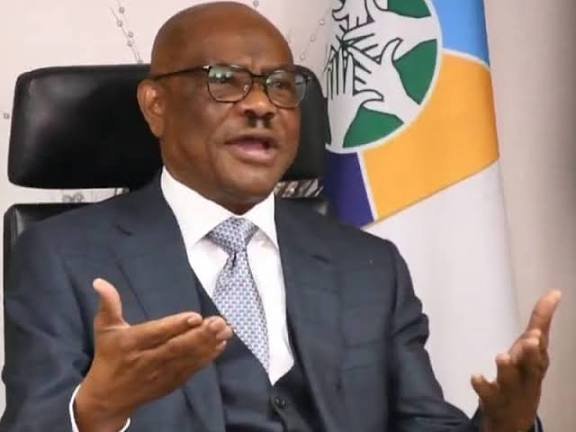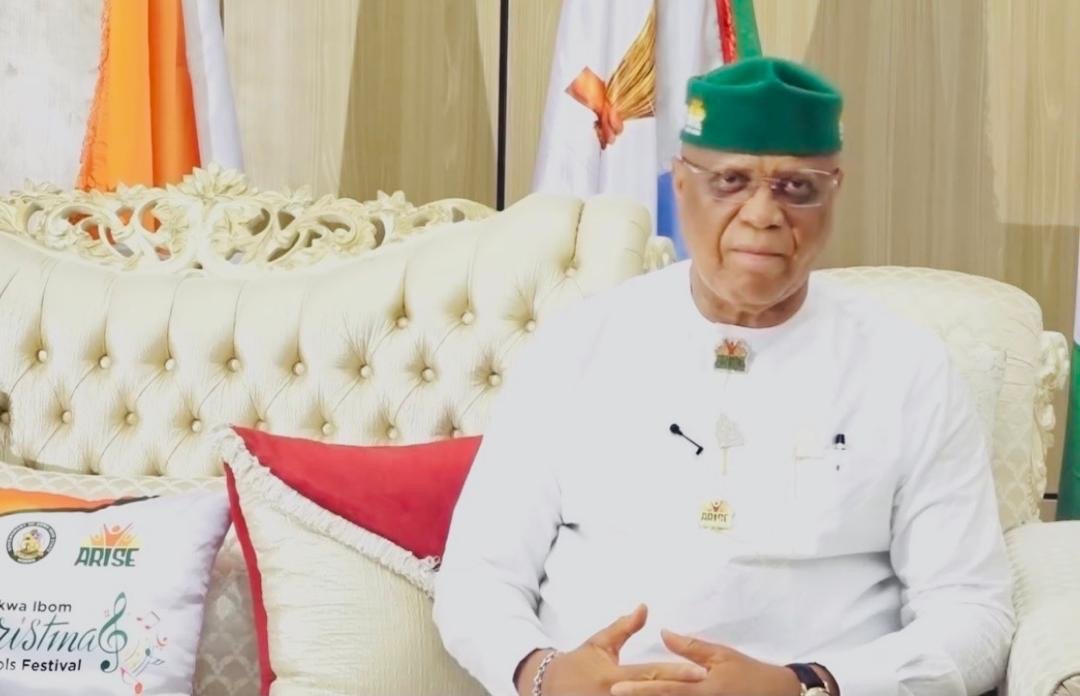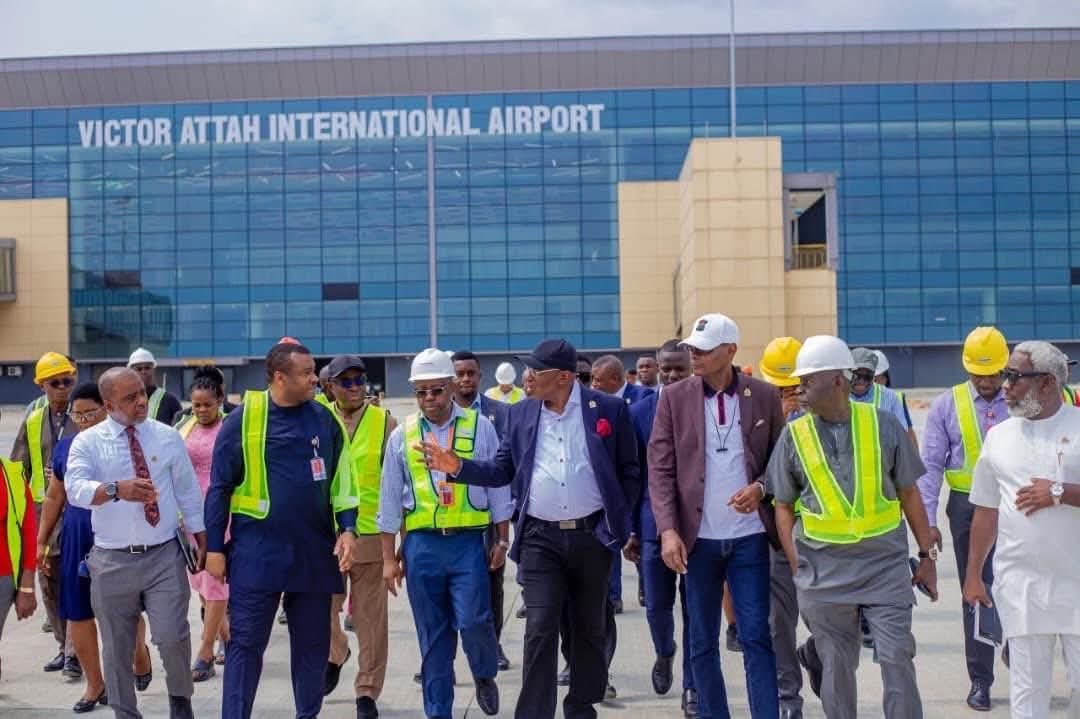By Etim Etim
Former President Olusegun Obasanjo has written a new book, his seventh, titled, ‘’Nigeria: Past and Future’’, in which he examines Nigeria’s struggles with leadership and good governance. He compares President Bola Tinubu’s administration with Muhammadu Buhari’s and writes that Tinubu’s government is “competing with Buhari’s in inefficiency”, and describes Buhari’s administration as the “worst civil administration” in Nigeria’s history.
He criticizes both administrations for their poor governance, citing issues such as economic hardship, insecurity, and rising unemployment. Obasanjo recalls that Buhari had once described Shehu Shagari’s government as corrupt and rudderless but failed to live up to his own promises when he became president. Similarly, Obasanjo expresses disappointment with the Tinubu administration, saying it has brought little relief to Nigerians, particularly with the removal of fuel subsidies and the floating of the naira. Obasanjo also questions the leadership abilities of both Buhari and Tinubu, suggesting that they have failed to live up to their promises. The former president said he is ‘’getting close to his departure lounge all my writings have been aimed at making Nigeria better’’.
While we wait for responses from the Presidency, a review of the performance of the two administrations in some key areas like agriculture and food sufficiency; infrastructure; public finance; monetary and fiscal policies, and areas like civil liberties and human rights; rule of law and democratic ideals, shows striking similarities and stark differences between the two administrations. Under agriculture, Buhari made self sufficiency in food production, especially production of rice and other grains, an integral part of his administration.
According to statistics from NBS and Federal Ministry of Agriculture, there was significant increase in rice production under Buhari, from 2.5 million metric tons in 2015 to 4 million metric tons in 2017, a 60% boost. It went further to over 9 million metric tons in 2021. These increases were mainly due to the various initiatives of the administration such as the Anchor Borrowers’ Programme. This programme financed 4.489 million farmers across 21 commodities, including rice. The program led to a significant reduction in rice imports, from 831,000 metric tons in 2014 to 26,194 metric tons in 2020. It also provided financing to smallholder farmers, and the establishment of large-scale rice processing plants.
Under Presidents Tinubu, investments in agriculture and food production are still at policy level. On Monday, June 23, 2025, the Presidency issued a lengthy press statement titled. ‘’In push for agriculktural renaissance, President Tinubu launches 2,000 tractors for mechanized farming’’.
The statement noted that the president commissioned ‘’2,000 tractors for nationwide deployment under Renewed Hope Agricultural Mechanization Programme’’. The statement went further to quote the president to have said at the event that ‘’we must seize this opportunity achieve agricultural inepence. Nigeria has vast land, the people and tools. Let history recall this day as the beginning of Nigeria’s agricultural renaissance’’. There was however no mention of targets of outputs to achieve and the timelines under which they’d be achieved.
Instead, the President paid tributes to a Belarusian, Alex Sigman, as his friend and classmate at Chicago as the brain behind his agric renaissance. But in the last two years, there has been a surge in food imports. Despite increased imports, rice prices have continued to rise, with a 50-kg bag costing between N95, 000 and N105,000 in 2024, compared to N47,000 in December 2023.To accurately assess the impact of Tinubu’s administration on rice production, more time and data are needed. However, it’s clear that both administrations have had distinct approaches to agricultural policy, with Buhari focusing on protectionism and local production, while Tinubu has adopted more liberal trade policies.
In infrastructural development, the two presidents are also taking different approaches. While Buhari concentrated on building rail network across the country, Tinubu is focusing on the 700-kilometer Lagos-Calabar Highway. Buhari completed the Abuja-Kaduna rail line which has so far carried over six million passengers; built and completed Lagos-Iadan rail line and Aladja-Itakpe rail line. Buhari was also in the process of obtaining funding from the China EXIM Bank for construction of Port Harcourt – Maiduguri rail line. President Tinubu is yet to build a single kilometre of rail in any part of the country; and there’s no indication of any plan for such. But during the campaigns, the president promised to construct railway as part of his infrastructural development. It’s not yet clear when the construction would start and from where.
In no other area is the differences in the policies of the two leaders more stark than in public finance; monetary and fiscal policies. Buhari ran the country with expensive oil subsidies that cost trillions of Naira and depleted the treasury. He was just too careful not to hurt the ordinary people, he said. The subsidies were eventually removed after the February 2023 presidential elections. The former president later explained that he had to delay it till after the elections so as not to hurt the chances of his party in the polls. Throughout his eight years, Buhari ran the country by printing money and borrowing from sources. The country was bankrupted. Under Buhari, the CBN also kept a dubious policy of dual exchange rate system, which essentially subsidized FX to cronies and fueled unprecedented corruption amongst his close friends and cronies.
Many claim that Buhari did not personally benefit from the lucre, but that’s debatable. But Tinubu’s approach bears the full marks of neo liberal monetary and fiscal policies which are typically recommended by the IMF. He scrapped the two-rate system, devalued the Naira and imposed a new regime of stringent taxation. The results are increased revenues to the federal states and local governments, on one hand, and hyper inflation on the other. Stemming inflation with tight monetary policies has since become the main preoccupation of the CBN. But without adequate incentives, agriculture and manufacturing have remained largely stagnated. Surely, monetary policies alone cannot curtail inflation.
If Buhari and Tinubu are different in their economic policies, there are striking similarities in security management. There are still killings, kidnappings, terrorism, banditry and unmitigated violence across the country just as there were under Buhari. Some statistics actually indicate that the causalities are more now than under Buhari who was even blamed for deliberately being soft in tackling these crimes because the perpetrators were his Fulani kinsmen.
Etim is a Journalist and Political Analyst, writes from Abuja.










